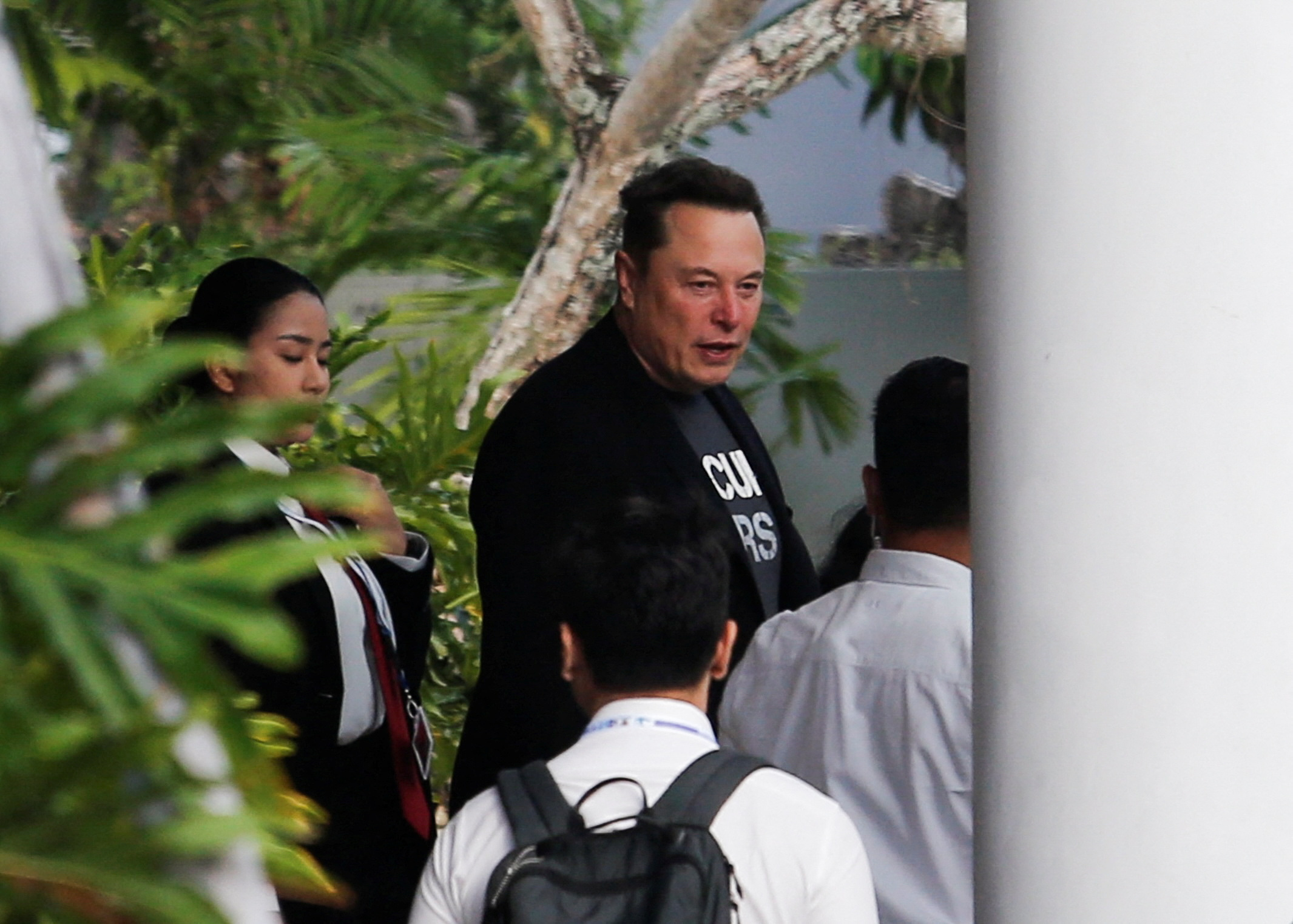
DENPASAR – Elon Musk, CEO of SpaceX and Tesla, alongside Indonesian Health Minister Budi Gunadi Sadikin, inaugurated SpaceX’s satellite internet service for Indonesia’s health sector on Sunday. This initiative aims to improve internet access in the remote regions of the extensive Indonesian archipelago.
Musk arrived on the Indonesian resort island of Bali via private jet to participate in the launch ceremony at a community health center in Denpasar, the provincial capital. Dressed in a green batik shirt, Musk emphasized the significance of Starlink’s availability in Indonesia for enhancing connectivity in distant areas. The nation, home to over 270 million people across three different time zones, faces significant challenges in internet accessibility.
“I’m very excited to bring connectivity to places that have low connectivity,” Musk stated. “If you have access to the internet, you can learn anything.”
The launch saw Starlink being activated at three Indonesian health centers, including two in Bali and one on the remote Aru Island in Maluku. A video presentation at the event demonstrated how high-speed internet could facilitate the real-time input of data to better address health challenges such as stunting and malnutrition.
When asked about potential investments in Indonesia’s electric vehicle (EV) industry, Musk indicated his current focus on Starlink. “We are focusing this event on Starlink and the benefits that connectivity brings to remote islands,” he said. “It’s crucial to highlight the importance of internet connectivity and how it can be a lifesaver.”
Indonesia’s government has long sought to attract Musk’s Tesla to establish EV manufacturing plants in the country, leveraging Indonesia’s rich nickel resources. Communications Minister Budi Arie Setiadi, who was present at the Bali launch, noted that Starlink is now commercially available in Indonesia. The government will prioritize providing services to outer and underdeveloped regions.
Before the official launch, Starlink secured a permit to operate as an internet service provider for retail consumers and received approval to provide networks through a very small aperture terminal (VSAT) permit, according to Budi Setiadi.
Starlink, which owns approximately 60% of the 7,500 satellites orbiting Earth, dominates the satellite internet industry. Indonesia is the third Southeast Asian country to host Starlink operations. Malaysia granted the firm a license for internet services last year, and a Philippine-based company signed an agreement with SpaceX in 2022.
In Ukraine, Starlink has been extensively used by the military, hospitals, businesses, and aid organizations, showcasing its versatile applications in various sectors.
- Event: Launch of SpaceX’s Starlink satellite internet service
- Date: Sunday
- Location: Bali, Indonesia
- Attendees: Elon Musk, Indonesian Health Minister Budi Gunadi Sadikin, Communications Minister Budi Arie Setiadi
- Focus: Improving internet access in remote areas
- Initial Launch Sites: Three health centers (two in Bali, one on Aru Island in Maluku)
- Future Plans: Meeting with Indonesian President Joko Widodo, addressing the World Water Forum
Starlink’s Expansion in Southeast Asia
| Country | Year | Details |
|---|---|---|
| Malaysia | 2023 | Issued license for internet services |
| Philippines | 2022 | Signed deal with a Philippine-based firm |
| Indonesia | 2024 | Launched services in three health centers; focus on remote regions |
- Improved Connectivity: Bringing internet access to remote and underserved areas.
- Enhanced Healthcare: Real-time data input for tackling health issues like stunting and malnutrition.
- Economic Opportunities: Potential for future investments in Indonesia’s EV sector.
Elon Musk is scheduled to meet Indonesian President Joko Widodo on Monday and will also address the World Water Forum taking place on the island. This visit underscores the potential for future collaborations between SpaceX and Indonesia, not only in satellite internet services but also in other high-tech industries.
The Indonesian government’s effort to attract Tesla to build EV manufacturing plants reflects its ambition to leverage the nation’s abundant nickel resources. However, Musk’s current priority remains on establishing robust internet connectivity through Starlink.
As Starlink continues to expand its global footprint, its impact on remote and underserved regions becomes increasingly evident. The introduction of Starlink in Indonesia marks a significant step towards bridging the digital divide and enhancing the quality of life for millions of Indonesians.
The launch of Starlink’s satellite internet service in Indonesia represents a pivotal moment for the country’s health sector and broader connectivity goals. By focusing on remote and underserved regions, SpaceX aims to provide critical internet access that can transform healthcare and education, and potentially pave the way for future technological advancements in Indonesia.
Related News:
Featured Image courtesy of StratNews Global
